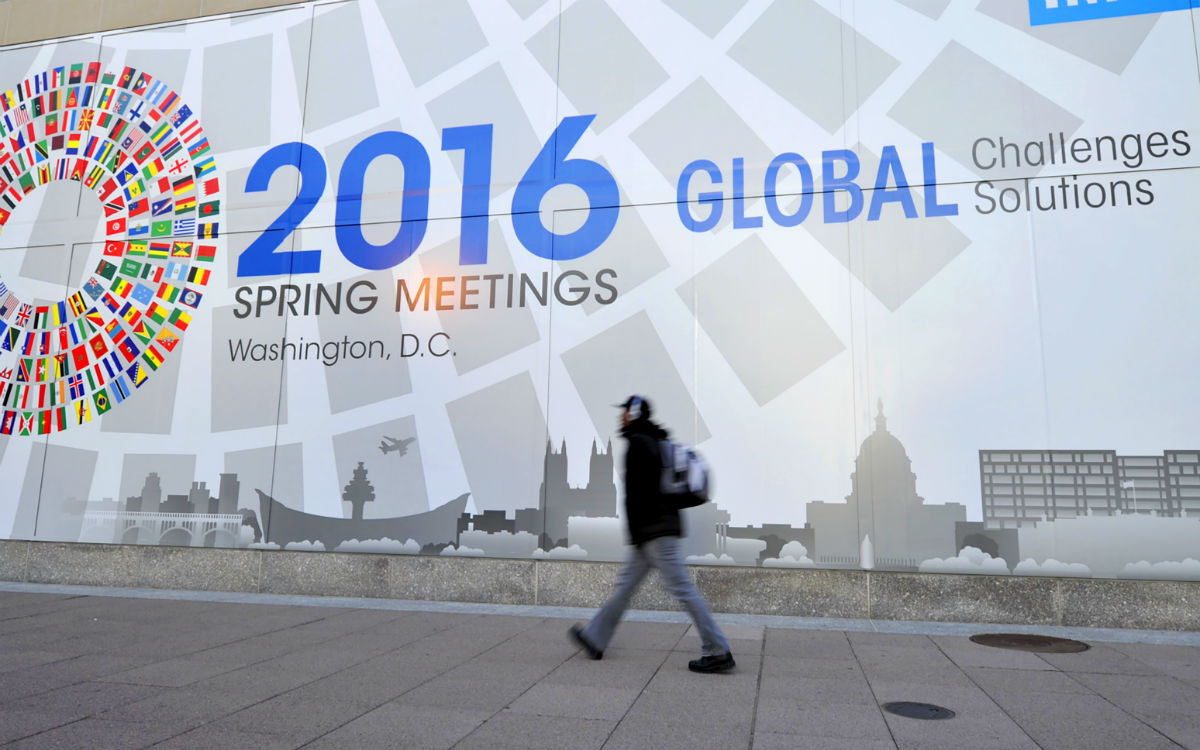World Bank signals 'fundamental' climate change shift
More than a quarter of investment will now go directly to help developing world fight global warming

A free daily email with the biggest news stories of the day – and the best features from TheWeek.com
You are now subscribed
Your newsletter sign-up was successful
The World Bank has signalled a "fundamental shift" in its funding policy which will see tens of billions of dollars channelled into projects to fight climate change.
Officials announced that in future, 28 per cent of all World Bank's investment would go into projects that, for example, aim to rapidly increase renewable energy capacity across the developing world. This will amount to at least $16bn (£11bn) a year by the end of the decade, notes The Guardian, with up to a further $13bn (£9bn) being "leveraged" from the private sector.
In addition, the organisation said that all of its future spending decisions would take account of the impact on the environment, a response in part to criticism that it has funded fossil fuel-based energy projects.
The Week
Escape your echo chamber. Get the facts behind the news, plus analysis from multiple perspectives.

Sign up for The Week's Free Newsletters
From our morning news briefing to a weekly Good News Newsletter, get the best of The Week delivered directly to your inbox.
From our morning news briefing to a weekly Good News Newsletter, get the best of The Week delivered directly to your inbox.
"This is a fundamental shift for the World Bank. We are putting climate change into our DNA," said John Roome, a senior director for climate change.
Along with its fellow development banks which are part of the World Bank Group, the funding body was made the "lynchpin" of a pledge agreed in Paris in December to provide $100bn (£71) of funding to poor countries to help them adapt to a low-carbon world.
At that summit, 195 world leaders vowed action to keep global temperature rises below the two-degree level that scientists frequently cite as a tipping point for catastrophic climate change. In two weeks, the leaders will convene in New York to formally sign that agreement.
"Following the Paris climate agreement, we must now take bold action to protect our planet for future generations," said Jim Yong Kim, the president of the World Bank Group.
A free daily email with the biggest news stories of the day – and the best features from TheWeek.com
"We are moving urgently to help countries make major transitions to increase sources of renewable energy, decrease high-carbon energy sources, develop green transport systems and build sustainable, liveable cities for growing urban populations. Developing countries want our help to implement their national climate plans, and we’ll do all we can to help them."
The new strategy will including funding construction of enough renewable energy to power 150 million homes in developing countries and building early warning systems for climate disasters for 100 million people, says the Guardian.
-
 ‘Restaurateurs have become millionaires’
‘Restaurateurs have become millionaires’Instant Opinion Opinion, comment and editorials of the day
-
 Earth is rapidly approaching a ‘hothouse’ trajectory of warming
Earth is rapidly approaching a ‘hothouse’ trajectory of warmingThe explainer It may become impossible to fix
-
 Health insurance: Premiums soar as ACA subsidies end
Health insurance: Premiums soar as ACA subsidies endFeature 1.4 million people have dropped coverage
-
 Epstein files topple law CEO, roil UK government
Epstein files topple law CEO, roil UK governmentSpeed Read Peter Mandelson, Britain’s former ambassador to the US, is caught up in the scandal
-
 Iran and US prepare to meet after skirmishes
Iran and US prepare to meet after skirmishesSpeed Read The incident comes amid heightened tensions in the Middle East
-
 Israel retrieves final hostage’s body from Gaza
Israel retrieves final hostage’s body from GazaSpeed Read The 24-year-old police officer was killed during the initial Hamas attack
-
 China’s Xi targets top general in growing purge
China’s Xi targets top general in growing purgeSpeed Read Zhang Youxia is being investigated over ‘grave violations’ of the law
-
 Panama and Canada are negotiating over a crucial copper mine
Panama and Canada are negotiating over a crucial copper mineIn the Spotlight Panama is set to make a final decision on the mine this summer
-
 Why Greenland’s natural resources are nearly impossible to mine
Why Greenland’s natural resources are nearly impossible to mineThe Explainer The country’s natural landscape makes the task extremely difficult
-
 Iran cuts internet as protests escalate
Iran cuts internet as protests escalateSpeed Reada Government buildings across the country have been set on fire
-
 US nabs ‘shadow’ tanker claimed by Russia
US nabs ‘shadow’ tanker claimed by RussiaSpeed Read The ship was one of two vessels seized by the US military